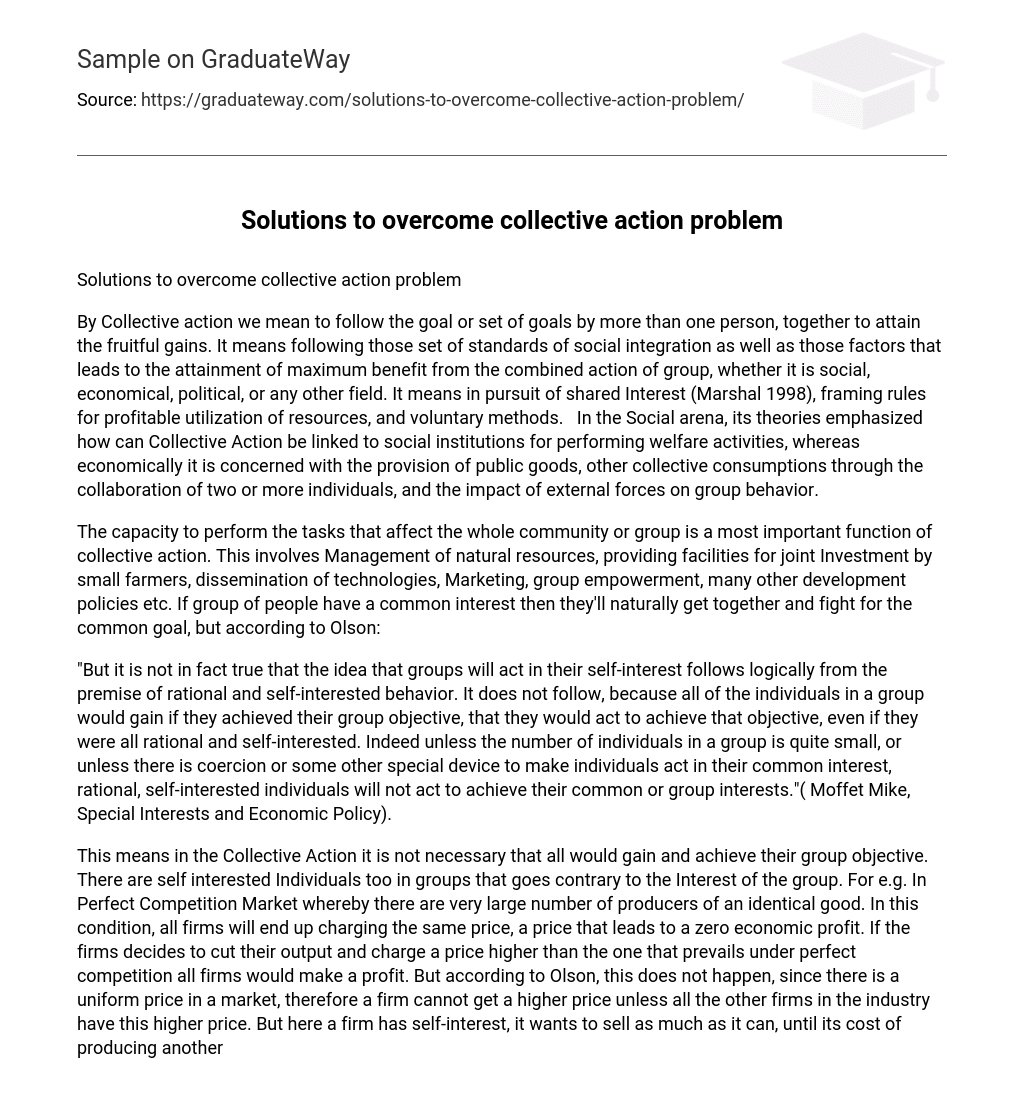Okay, picture this: You and your friends want to start a community garden. Sounds awesome, right? Fresh veggies, a cool hangout spot, good vibes all around. But then reality hits. Who's going to do the weeding? Who's going to water when it's scorching hot? Suddenly, that amazing idea starts to wilt faster than a neglected tomato plant. What happened? You just bumped into a collective action problem!
Essentially, a collective action problem is when a bunch of people *would* benefit from something, but no one individual has enough incentive to actually do what's needed to make it happen. It's like everyone wants a clean kitchen, but no one wants to do the dishes. Sounds familiar?
But don't despair! Just like there are ways to coax stubborn plants to grow, there are also ways to tackle these collective action headaches. So, what are some of these magic beans, these secret ingredients that can turn a group of individuals into a well-oiled, problem-solving machine?
Making it Personal: The Power of Selective Incentives
Let's start with something called selective incentives. Think of it as dangling a carrot (or a compost bin!) in front of potential participants. Basically, you give people extra perks for contributing. Maybe those who volunteer the most hours in the garden get first dibs on the ripe tomatoes. Or perhaps there's a coveted "Gardener of the Month" award with bragging rights and a snazzy trowel. The key is to make contributing personally rewarding.
Think of it like a frequent flyer program. Airlines know you want to travel anyway, but they incentivize you to choose them by offering points, upgrades, and lounge access. That little extra push can make all the difference.
The Watchdog Effect: Monitoring and Enforcement
Another powerful tool is monitoring and enforcement. This doesn't mean you need to hire a garden sheriff! It simply means establishing some clear rules and holding people accountable. A signup sheet for watering duties? A gentle reminder to those who haven't pulled their weight? These simple measures can go a long way. No one wants to be the reason the zucchini wither and die!
Imagine a neighborhood watch program. The whole point is to deter crime. The more people actively looking out for each other (monitoring), the less likely someone is to break the rules (enforcement). It's like a group project where everyone knows their grade depends on the team's overall performance – suddenly, everyone's a lot more motivated to contribute!
The Warm Fuzzy Factor: Social Norms and Peer Pressure
Humans are social creatures. We care (at least a little!) about what others think of us. This is where social norms come into play. If everyone else is diligently weeding and composting, you're going to feel a bit like a slacker if you're just lounging around sipping lemonade. Creating a culture of shared responsibility can be incredibly powerful. Positive peer pressure, when channeled correctly, can be a surprisingly effective motivator.
Think about recycling. While there are certainly environmental benefits, a lot of people recycle simply because it's the "right" thing to do. They don't want to be seen as wasteful or uncaring. It's the same reason people donate to charity or volunteer their time – it feels good to be part of something bigger than themselves.
United We Stand: Building Group Identity
Finally, one of the most crucial elements is group identity. When people feel like they're part of a team, when they identify with a shared goal, they're much more likely to contribute. Think about sports teams, volunteer organizations, or even online communities. A strong sense of belonging can overcome individual reluctance and foster a spirit of collaboration.
Imagine a group of friends who are passionate about saving endangered species. They're not just individuals acting alone; they're a unified force working towards a common cause. They wear matching t-shirts (okay, maybe not), organize fundraising events, and support each other every step of the way. Their shared identity empowers them to achieve far more than they could individually.
So, next time you're facing a collective action problem, remember these strategies. Whether it's starting a garden, cleaning up a park, or simply getting your roommates to do their fair share of chores, with a little creativity and a dash of ingenuity, you can overcome those hurdles and achieve amazing things together. Now, who's up for some weeding?





